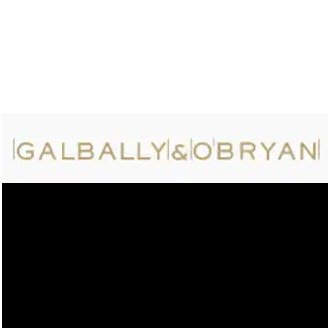Best Motor Vehicle Defect Lawyers in Pakenham Upper
Share your needs with us, get contacted by law firms.
Free. Takes 2 min.
List of the best lawyers in Pakenham Upper, Australia
About Motor Vehicle Defect Law in Pakenham Upper, Australia
Motor Vehicle Defect Law primarily focuses on the rights and protection of consumers who have purchased a new or used vehicle that fails to meet quality or safety standards, or is inherently defective. In Pakenham Upper, Australia, these laws are governed and enforced by Consumer Affairs Victoria, as well as the Australian Consumer Law (ACL). Manufacturers and sellers are required by law to rectify defective vehicles or offer a replacement or refund.
Why You May Need a Lawyer
Given the complexity of Motor Vehicle Defect Law, you may require legal counsel in various scenarios such as dealing with an uncooperative seller or manufacturer, unsatisfactory repair or replacement proposals, difficulties obtaining a refund for a faulty vehicle, or if your defective vehicle has caused a traffic accident resulting in personal injuries or damages. A lawyer can assist you to negotiate with manufacturers and dealers, provide representation in court if necessary, and help you understand and navigate the legal avenues available to you.
Local Laws Overview
The chief law relevant to Motor Vehicle Defect in Pakenham Upper, and indeed all of Australia, is the ACL. This entitles consumers to a replacement or refund for a major failure and compensation for any other reasonably foreseeable loss or damage. It also provides for a repair or replacement if goods (including motor vehicles) fail to be of acceptable quality. Moreover, if a car is diagnosed with multiple non-major defects within its warranty period, it may also fall under the category of a 'Lemon' under the ACL, which would entitle a consumer to remedies.
Frequently Asked Questions
What is considered a defective vehicle?
A defective vehicle is one that has manufacturing or design defects that significantly impairs its use, safety or value, or that does not comply with the mandatory standard of automotive safety.
What should I do if I purchased a defective vehicle?
If you've bought a defective vehicle, you should first contact the seller or manufacturer about the issue. If they do not offer to fix the issue or provide a satisfactory solution, contact a lawyer to understand your next steps.
What are my rights as a consumer under Australian Consumer Law?
As a consumer, you have the right to ask for a repair, replacement, or refund if a product or service you bought has major problems. This applies to motor vehicles as well.
Does a used car fall under Motor Vehicle Defect Law?
Yes, the ACL protections extend to both new and used cars.
Do I always need to go to court over vehicle defect issues?
Not necessarily. Many disputes over defective vehicles can be resolved through negotiation or alternative dispute resolution methods. However, if these attempts fail, legal proceedings may be required.
Additional Resources
The Consumer Affairs Victoria, the ACCC (Australian Competition and Consumer Commission), and the Victoria Law Foundation offer resources and guides about Australian Consumer Law and your rights regarding defective goods, including motor vehicles. You may also consult the ACL itself, available online, to understand the in-depth aspects of these laws.
Next Steps
If you're in need of legal advice or representation in relation to a defective motor vehicle, it's recommended to consult a solicitor or law firm experienced in this field. You can also seek assistance from community legal centres or legal aid commissions. Record all relevant details and maintain documentation such as repair invoices, communication records, and any expert evaluations of your vehicle defects, as these will be vital in presenting your case.
Lawzana helps you find the best lawyers and law firms in Pakenham Upper through a curated and pre-screened list of qualified legal professionals. Our platform offers rankings and detailed profiles of attorneys and law firms, allowing you to compare based on practice areas, including Motor Vehicle Defect, experience, and client feedback.
Each profile includes a description of the firm's areas of practice, client reviews, team members and partners, year of establishment, spoken languages, office locations, contact information, social media presence, and any published articles or resources. Most firms on our platform speak English and are experienced in both local and international legal matters.
Get a quote from top-rated law firms in Pakenham Upper, Australia — quickly, securely, and without unnecessary hassle.
Disclaimer:
The information provided on this page is for general informational purposes only and does not constitute legal advice. While we strive to ensure the accuracy and relevance of the content, legal information may change over time, and interpretations of the law can vary. You should always consult with a qualified legal professional for advice specific to your situation.
We disclaim all liability for actions taken or not taken based on the content of this page. If you believe any information is incorrect or outdated, please contact us, and we will review and update it where appropriate.








